|
When does a legal reporting requirement for a social media company become a violation of the First Amendment? When it drums up public and political pressure to enforce viewpoint discrimination.
This is the conclusion of legal scholar Eugene Volokh and Protect The First Foundation, which filed an amicus brief late Wednesday before the Ninth Circuit Court of Appeals asking it to overturn a lower court ruling that upheld a California law requiring social media companies to disclose their content moderation practices. California Bill AB 587, signed into law by Gov. Gavin Newsom in 2022, compels social media companies to produce two such reports a year on their moderation practices and decisions, to be published on the website of the California Attorney General. This law “violates the First Amendment’s stringent prohibition on viewpoint discrimination” by “requiring social media companies to define viewpoint-based categories of speech,” declared Volokh, Senior Legal Advisor to Protect The 1st. “The law also requires these companies to report their policies as to those viewpoints, but not other viewpoints ...” This brief supports the challenge from X Corp.’s lawsuit filed in September 2023 that also asserted that AB 587 violates the First Amendment, which “unequivocally prohibits this kind of interference with a traditional publisher’s editorial judgment.” Volokh and Protect The 1st cited the landmark U.S. Supreme Court case, NAACP v. Alabama (1958), in which the Court overturned an Alabama law that would have compelled disclosure of the NAACP’s membership lists. The threat behind this law, the Court noted, relied on governmental and private community pressures that would result in the harassment of individuals and discouragement of their speech. “Generating either massive fines or public ‘pressure,’ a euphemism for public hostility, triggers the most exacting scrutiny our Constitution demands,” Volokh told the court. “California Assembly Bill 587 violates the First Amendment’s stringent prohibition on viewpoint discrimination. And AB 587 does so by leaning on social media companies to do the government’s dirty work, either through fear of fine or public pressure.” The brief cites a Supreme Court opinion that states “what cannot be done directly [under the Constitution] cannot be done indirectly.” Volokh writes: “The intent behind the law is clear from its legislative history, comments by its enforcer (Attorney General Rob Bonta), and common sense. That intent is to strongarm social media companies to restrict certain viewpoints—to combine law and public pressure to do something about how platforms treat those particular viewpoints, and not other viewpoints. That confirms that the facial viewpoint classification in the statute is indeed a viewpoint-based government action aimed at suppressing speech—and that violates the First Amendment.” Protect The 1st will continue to report on X Corp.v. Bonta as an important flashpoint in the continuous struggle to keep speech free of official regulation. Should we move to a post-Section 230 internet? Is liability-free content hosting coming to an end?
In Wired, Jaron Lanier and Allison Stanger argue for ending that provision of the Communications Decency Act that protects social media platforms from liability over the content of third-party posts. The two have penned a thoughtful and entertaining analysis about the problems and trajectory of a Section 230-based internet. It’s worth reading but takes its conclusions to an unjustifiable extreme – with unexamined consequences. The authors assert that while Section 230 may have served us well for a time, they argue that long-running negative trends have outpaced the benefits that Section 230 provided. The authors write that modern, 230-protected algorithms heavily influence the promotion of lies and inflammatory speech online, which it obviously does. “People cannot simply speak for themselves, for there is always a mysterious algorithm in the room that has independently set the volume of the speaker’s voice,” Lanier and Stanger write. “If one is to be heard, one must speak in part to one’s human audience, in part to the algorithm.” They argue algorithms and the “advertising” business model appeal to the most primal elements of the human brain, effectively capturing engagement by promoting the most tantalizing content. “We have learned that humans are most engaged, at least from an algorithm’s point of view, by rapid-fire emotions related to fight-or-flight responses and other high-stakes interactions.” This dynamic has had enormous downstream consequences for politics and society; Section 230 “has inadvertently rendered impossible deliberation between citizens who are supposed to be equal before the law. Perverse incentives promote cranky speech, which effectively suppresses thoughtful speech.” All this has led to a roundabout form of censorship, where arbitrary rules, doxing, and cancel culture stifle speech. Lanier and Stanger call this iteration of the internet the “sewer of least-common-denominator content that holds human attention but does not bring out the best in us.” Lanier and Stanger offer valid criticisms of the current state of the net. It is undeniable that discourse has coarsened in connection with the rise of social media platforms and toxic algorithms. Worse, the authors are correct that algorithms provide an incentive for the spreading of lies about people and institutions. Writing that John Smith is a lying SOB who takes bribes will, to paraphrase Twain, pull in a million “likes” around the world before John Smith can tie his shoes. So what is to be done? First, do not throw out Section 230 in toto. As we previously said in our brief before the U.S. Supreme Court with former Senator Rick Santorum, gutting Section 230 “would cripple the free speech and association that the internet currently fosters.” Without immunity, internet platforms could not organize content in a way that would be relevant and interesting to users. Without Section 230 protections, media platforms would avoid nearly any controversial content if they could be frivolously sued anytime someone got offended. Second, do consider modifications of Section 230 to reduce the algorithmic incentives that fling and spread libels and proven falsehoods. Lanier and Stanger make the point that the current online incentives are so abusive that the unhinged curtail the free speech of the hinged. We should explore ways to reduce the gasoline-pouring tendency of social media algorithms without impinging on speech. Further reform might be along the lines of the bipartisan Internet PACT Act, which requires platforms to have clear and transparent standards in content moderation, and redress for people and organizations who have been unfairly deposted, deplatformed, and demonetized. Lanier and Stanger are thinking hard and honestly about real problems, but the problems they would create would be much worse. A post-230 social media platform would be either be curated to the point of being inane, or not curated at all. Now that would be a sewer. Still, we give Lanier and Stanger credit for stimulating thought. Everyone agrees something needs to change online to promote more constructive dialogue. Perhaps we are getting closer to realizing what that change should be. The accidental release by the Los Angeles Police Department of thousands of officers’ photo headshots – including, inadvertently, those of police working undercover – has resulted in a spiderwebbing series of hostile legal actions drawing in the LAPD, an angry police union, an even angrier group of undercover officers, press advocates, City Attorney Heidi Feldstein Soto, and Mayor Karen Bass. Finger pointing abounds. Yet, the party arguably at the center of the controversy is Knock LA journalist Ben Camacho, now being sued by the city to recover the costs of its own clerical error.
Camacho received the photos in 2022 pursuant to a California Public Records Act request. While the LAPD initially fought back against providing headshots of active-duty officers, they eventually capitulated following a settlement agreement in which they assented to providing all available photos except for those of officers serving in an undercover capacity. Except, they provided those, too. Soon after, at least two groups of police officers sued the LAPD. And in April, the LAPD filed suit against Camacho to prevent publication of the more than 9,300 images. That’s where press advocates came into the picture. As the Reporters Committee for Freedom of the Press pointed out in its amicus brief, “the Supreme Court of the United States has long recognized prior restraints as the ‘most serious and the least tolerable infringement on First Amendment rights’ because they are ‘an immediate and irreversible sanction’ not only ‘chill[ing]’ speech but also ‘freez[ing]’ it, at least for a time. This constitutional harm is magnified when the government seeks the removal of already published information.” Indeed, the Court has on multiple occasions made it clear that when the government releases information, even if accidentally, it can’t then attempt to gag the press to prevent publication. That established legal reasoning apparently didn’t sway the Los Angeles Superior Court, which ruled for the City of Los Angeles. Camacho has since appealed. Another twist in this saga occurred more recently when the city sued Camacho for indemnification. As Freedom of the Press Foundation advocacy director Seth Stern said, the “city has hit the trifecta of anti-press First Amendment violations: first, demanding journalists give back documents the government released, second, censoring journalists from publishing information, and now, holding journalists financially liable for truthful publications ...” State intimidation of the press is nothing new, but it seems to be taking on a troubling new tenor. At Protect The 1st, we’ve documented a series of recent efforts by power-drunk officials to punish reporters for committing acts of journalism. In Alabama, a small town publisher and reporter were arrested for reporting on a grand jury leak about the alleged mishandling of COVID relief funds. In Kansas, police raided the Marion County Record in an effort to track down an informant who revealed information about a local restauranteur’s DUI. In that instance, the paper’s 98-year-old co-owner died a day after her home was raided. The LAPD debacle is further evidence of declining respect for the First Amendment and a free press. The City of Los Angeles should cease its legal gesticulating, own up to its mistake, and move on. Honest reporters should not pay for government slip-ups. Earlier this year, the student senate at Columbia Law voted to deny official recognition to Law Students Against Antisemitism, a student group seeking to “raise awareness and educate about both historical and contemporary antisemitism.” Nine other organizations requested official recognition this year, with LSAA being the only group to be denied so far. The reason? According to FIRE, “the rejection appeared to rest on objections to LSAA’s definition of antisemitism, which some pro-Palestine students opposed.”
Although the student senate quickly reversed course, the American Bar Association took it as an opportunity to formalize speech protections. This month, the ABA House of Delegates passed a resolution to adopt Standard 208, a new rule requiring law schools to “protect the rights of faculty, students and staff to communicate ideas that may be controversial or unpopular, including through robust debate, demonstrations or protests.” ABA accreditation requires adhering to Standard 208, or else law schools could be denied accreditation or have it revoked for failing to protect free speech. The importance of this rule should not be missed. As the ABA Journal states, Standard 208 is “the first accreditation standard to address free speech for the entire community within law schools.” Protect The 1st Senior Legal Advisor Eugene Volokh said: “the standard is another tool in the toolbox of a dean who wants to protect free speech and academic freedom … The dean can tell student activists, ‘Look, do you want us to lose our accreditation?’” Nevertheless, Standard 208 is only a Band-Aid to the broader cultural decay for the respect of free speech and intellectual diversity in law schools. “I’ve had a lot of students complain to me that they are reluctant to speak out in class – not because they’re afraid of discipline, but because they’re afraid their classmates will ostracize them,” Volokh said. “But you can’t have a rule to stop that.” The past few years have seen no shortage of campus incidents that would certainly have gone against Standard 208 had it been in effect. Stanford Law students shouted down Judge Stuart Kyle Duncan of the Fifth Circuit Court of Appeals when he came to give a talk in March of last year. Similarly at Yale, Kristen Waggoner of the Alliance Defending Freedom was harassed by an ugly protest over a (irony alert) panel discussion about free speech. Law schools increasingly resemble the hostile and immature playgrounds that undergraduate institutions have become. While Standard 208 will help, we have a long way to go before free speech will be fully restored. The Fifth Circuit Court of Appeals just dealt a serious blow to the freedom of the press, endorsing immunity for arresting a reporter for simply asking questions of the government and publishing the answers. The case, Villarreal v. City of Laredo Texas, arose when Facebook vlogger-journalist Priscilla Villarreal, who goes by the self-deprecating nickname Lagordiloca (“crazy, fat woman”) was detained for her coverage of a traffic accident and the suicide of a U.S. Border Patrol employee in Laredo.
Villarreal swore that she corroborated the names of the deceased individuals in the suicide and traffic accident with a source in the Laredo Police Department – taking this step after independently verifying these identities. In response to her reporting, Villarreal was detained and charged with violating a Texas law that makes it a crime to solicit nonpublic information from a public servant “with intent to obtain a benefit.” During the booking process, officers surrounded Villarreal, mocked her, and took cellphone photos of her while she was being fingerprinted. The case had already appeared before the Fifth Circuit Court of Appeals in 2022, when a panel of judges originally sided with Villarreal. Judge Ho, writing for the court, held that “if the First Amendment means anything, it surely means that a citizen journalist has the right to ask a public official a question, without fear of being imprisoned.” The en banc appeal, which was decided recently, held that city officials were entitled to qualified immunity and that “Villarreal sought to capitalize on others’ tragedies to propel her reputation and career.” Such weaponized language could easily be leveled against any news outlet in the country. This case sets a bad precedent for the freedom of the press if reporters can’t ask government officials questions without fear of arrest and other reprisals, with the police inflicting such injury held immune for any consequences. Consider one case in November, when reporter Hank Sanders was cited for persistently asking Calumet City officials for a comment about flooding in the town. The citation was ultimately dropped after city officials realized that enforcing the citation would prove to be more of a hassle than simply responding to Sanders and his questions. Or consider the rural Kansas police department that ransacked the offices of the Marion County Record in execution of a search warrant to track down an informant. The leaked information? A local restauranteur’s DUI record that the newspaper had already decided not to print. Computers were seized, cell phones were snatched, all just to bully the press. We have long counted on a judicial buffer to correct local abuses. Thanks to the Fifth Circuit’s expansive view of qualified immunity, and seemingly narrow view of First Amendment rights, that buffer just became thinner. If the same standard that the Fifth Circuit endorsed were to be adopted across the country, journalists would be left with little recourse when law enforcement comes crashing through their doors, but ultimately declines to prosecute them. In his dissent in the Villarreal case, Judge James Graves wrote that the Fifth’s opinion means journalists “will only be able to report information the government chooses to share” lest they face arrest and other harassment. Villarreal has already declared her intent to appeal to the U.S. Supreme Court. Protect The 1st supports Villarreal’s appeal and looks forward to her vindication for the sake of all American journalists. A recent Wall Street Journal op-ed made the case for school choice as an antidote to “illegal work stoppages” in the educational system.
In January, the Newton Teachers Association in Massachusetts staged a walkout in pursuit of higher pay, despite earning an average of more than $93,000 per employee (8 percent higher than the average statewide salary). The work stoppage left 12,000 Newton schoolchildren abandoned for weeks, with courts attempting in the interim to enforce a 1973 law prohibiting Massachusetts public employees from striking. The Journal contends that making per-pupil spending directly available to parents and children to choose their own educational paths will disincentivize disruptions like the one that took place in Newton. That is doubtlessly true. For our part, Protect The 1st values school choice not for any operational or political reason, but because it substantiates the guarantees of the First Amendment. It permits parents, religious or nonreligious, conservative or liberal, to find schools that best fit the values they want to pass on to their children. Research proves that school choice brings powerful improvements in academic results and in children’s lives. It empowers parents and it challenges public schools to do better. That is why school choice is sweeping the nation, with 10 states passing universal school choice since 2021 and many others creating education savings accounts that allow public funds to follow the child. The school choice movement would do well to steer clear of any hint of union-busting (which itself implicates First Amendment rights to free association). Instead, let’s look at the measurable benefits over time – not least of which is allowing parents to pass down their values and children to achieve excellence. Such a change would not only be in the best interests of parents and their children. It would be in the enlightened self-interest of teachers themselves, offering many new opportunities for flourishing careers. The Foundation for Individual Rights and Expression, in collaboration with the Academic Freedom Alliance and the Heterodox Academy, has penned an open letter urging the trustees and regents of American universities to “put neutrality above politicized institutional statements that threaten open debate on college campuses.”
The letter is specifically addressed to the trustees of universities, who wield considerable power to set institutional policy. “It is time for those entrusted with ultimate oversight authority for your institutions to restore truth-seeking as the primary mission of higher education by adopting a policy of institutional neutrality on social and political issues that do not concern core academic matters or institutional operations,” the letter says. “In recent years, colleges and universities have increasingly weighed in on social and political issues. This has led our institutions of higher education to become politicized and has created an untenable situation whereby they are expected to weigh in on all social and political issues." The letter specifically calls on every university to adopt an institutional neutrality policy, much like that espoused by the Kalven Report of the University of Chicago authored in 1967. The letter quotes that report, noting that institutional neutrality is necessary “to pursue truth through ‘the discovery, improvement, and dissemination of knowledge.’ And to accomplish this mission, ‘a university must sustain an extraordinary environment of freedom of inquiry and maintain an independence from political fashions, passions, and pressures.’” Greg Lukianoff, President and CEO of FIRE, said that “a top-down, father-knows-best mentality is absolutely no way to support the next generation of free thinkers. Students and faculty deserve the freedom to experiment with different perspectives and explore entirely new ways of thinking without the college claiming to have done all the thinking for them.” The open letter follows on the heels of FIRE’s annual college free speech index, in which not a single university received a score higher than 79 out of 100. If this were a college class, that would be a C+ ranking. Many of America’s most prestigious institutions receive abysmal rankings. Harvard received a score of zero, which was rounded up because the index couldn’t accommodate negative numbers. Protect The 1st applauds FIRE’s open letter to university trustees and regents. The state of free inquiry in American universities is dire. We need bold leadership to right the course. We look forward to further developments in this story. Long before the founding of the United States, religious refugees flooded into America to escape the Star Chamber, the Inquisition, the persecutions, and wars over religious doctrine that made worship in the Old World a dangerous activity. Millions wanted relief from the incessant surveillance – exemplified by William Laud, Charles I’s Archbishop of Canterbury – that often relied on spies dispatched to listen to sermons with sharp ears for anything out of line with official orthodoxy.
The House of Representatives is preparing to decide whether to include surveillance reforms in the reauthorization of Section 702 of the Foreign Intelligence Surveillance Act. This legislation will have serious implications for the free practice of religion in America. House Speaker Mike Johnson in an interview late last year addressed the FBI’s surveillance of traditional Catholics as possible terrorists, and the targeting of pro-life activists like Mark Hauck, whose wife and seven children watched in terror as an FBI swat team broke down their front door and pointed five guns at his head over a supposed violation of the Freedom of Access to Clinic Entrances Act. “I’ve made it very clear that, in my view, the evidence shows that, the FBI, for example, in the last couple of years has been weaponized,” Speaker Johnson told The Daily Signal. “We have the evidence to show it. They have, in some cases, targeted people of faith. They’ve targeted conservative Catholics and concerned parents at school board meetings … that’s what happened.” Alex Marthews of Restore the Fourth documents abuses of religious rights from church- organized civil rights protests in the 1960s to the surveillance of patriotic, law-abiding Muslims today. We recently reported on the creepy surveillance of Calvary Chapel in San Jose, California. Such government snooping into religious expression is enabled by two massive databanks that the government freely dips into without a warrant. One is Section 702, an authority that allows the surveillance of foreign targets located abroad, but incidentally collects the communications of millions of Americans. The FBI has dipped into this ocean of Americans’ communications millions of times in recent years without warrants. The other database is the commercial purchase of our most sensitive and personal information scraped from apps and sold to the FBI, IRS, Department of Homeland Security, and many other agencies. This, too, is information the government holds and freely accesses, all without a warrant. There are deep implications for the character of our nation in the growth of warrantless surveillance. Religious scholar David Lyon writes of the modern replacement of the idea of a God, who watches his creation with deep and loving concern, with the state’s Algorithm, replacing eternal joy with a perpetual living death. Or to put it in secular terms, this is the vision of George Orwell of a boot stamping on a human face forever. Any House Member who values the freedom to worship as one wishes, or not to worship at all, should take a stand for religious freedom by requiring warrants before the FBI or any other governmental agency can freely inspect our beliefs, values, and activities. This is not a new or radical notion. The founders wrote the warrant requirement into the Fourth Amendment to the Constitution to set us apart from Old World ways. Let us not go back. Klein v. Oregon Bureau of Labor and Industries The Oregon Court of Appeals is once again considering the case of Aaron and Melissa Klein, owners of Sweet Cakes by Melissa after the U.S. Supreme Court twice sent their case back for reconsideration by that state court.
As Yogi Berra said, it’s like déjà vu all over again. This case began 11 years ago when the Oregon Bureau of Labor & Industries (BOLI) fined the Kleins $135,000 for declining to make a cake promoting a gay commitment ceremony, which the Kleins said violated their religious beliefs. While it would be illegal – and should be – to refuse to serve food, lodging, or a million other items to people on the basis of their sexual orientation, this case touched on the First Amendment rights of the Kleins not to create a message that violates their religious belief. The state regulator even slapped the Kleins with a gag order that prevented them from discussing their case. “We welcomed and served everyone in our bakery, but we could not endorse all messages,” Melissa Klein said. “Freedom of speech has always included the freedom not to speak the government’s message,” said Stephanie Taub, senior counsel to First Liberty Institute, which represents the Kleins. “The First Amendment protects all Americans, of different perspectives and beliefs, to not be forced to use their art to send a message with which they disagree.” After the Supreme Court ruled in favor of Jack Phillips in Masterpiece Cake Shop v. Colorado Civil Rights Commission in 2018 for refusing to make a cake for a same-sex wedding, the high court sent the Klein’s case back to Oregon. BOLI responded with a vengeance, this time imposing a $30,000 fine on the Kleins. In June 2023 the Supreme Court for the second time sent this case back to the state for reconsideration, this time on the basis of its 303 Creative LLC v. Elenis, which allowed business owners to decline a service if it required them to create a message contrary to their religious beliefs. The Court clearly believes that the same principle that applies to a website designer also protects the religious rights of a baker. How many times will a state regulatory body be allowed to refuse to acknowledge the authority of the U.S. Supreme Court? In January, the Oregon court heard oral arguments in this case to test that principle. It is time for the Oregon court to tell state regulators: this cake is baked. “Who can we talk to about the high levels of propaganda and misinformation and disinformation of Amazon?” Andrew Slavitt, a former White House senior adviser for COVID-19 response, wrote in an email on March 2, 2021.
Rep. Jim Jordan, Chairman of the House Judiciary Committee, on Tuesday released this missive along with a mass of subpoenaed material in his investigation of what was clearly government intervention to censor books. Slavitt’s email was the beginning of a White House effort to pressure Amazon into pulling or depressing the visibility of books that conflicted with the scientific orthodoxy on the safety of vaccines and COVID-19 related policies. Amazon initially resisted, but not on free speech grounds. An Amazon executive in an internal email revealed by Jordan declared: “We will not be doing a manual intervention today.” The reason? The “team/PR feels very strongly that it is too visible” and such censorship would rile conservatives, prompting Amazon to get “the Fox News treatment.” You might regard vaccine skepticism as the equivalent of a flat-Earth, antiscientific conspiracy theory. On the other hand, Richard Epstein – legal scholar and erudite public intellectual – argued that lockdowns were doing more harm than good, and that there are valid reasons to question the efficacy and safety of COVID-19 vaccines. Many scientists and writers have piled on Epstein’s theories as riddled with errors, to which Epstein has responded. We have seen time and again in science and policy that today’s outlandish idea could become tomorrow’s orthodoxy. Or not. The question for now is – are we better off suppressing a debate of urgent personal as well as public interest? Or should we let the science and public policy get sorted out in open debate? Such questions once did not need to be asked. In recent years, the value of the First Amendment has gotten lost in the weeds, especially among people with outstanding educations from elite institutions (Andrew Slavitt: University of Pennsylvania and Harvard) which, somehow, are failing to impart the basics most Americans were once taught in high school civics. To be clear, on First Amendment grounds, Amazon has every right to choose and reject books in its portfolio. If a certain author named Humbert Humbert submitted a book entitled, “How to Seduce Fourteen-Year-Old Girls,” Amazon would be well within its rights to decline it (not to mention call the police). But Amazon is a special company with a special responsibility to the spirit, if not the letter, of the First Amendment. Consider: Amazon sells 300 million print books a year. It is responsible for more than one-half of the sales of the Big Five publishers and controls up to 80 percent of the book distribution in the United States. When Amazon disallows or suppresses the sale of a book, it effectively kills it. One would expect Amazon to give maximum room for unpopular or iconoclastic ideas, whatever the PR or political consequences. Most important of all, the First Amendment applies to government action. Pressure from the White House ultimately succeeded in persuading Amazon to issue a “Do Not Promote” order for books skeptical about vaccines. That is government censorship, directly forbidden by the First Amendment. The urge to stop people one believes are clearly wrong, with public policy prescriptions that are dangerous, is a temptation that merely compounds the danger. Conservatives regard progressive ideas as dangerous, and liberals see conservatives as the dangerous ones. Neither side can be trusted with the power to censor the other. Nor can government be trusted to treat ideas as a regulated industry. Credit goes to Chairman Jordan for revealing this official act of censorship. Pastor Sues City for “Harassment” Campaign Over Homeless Ministry Police in Bryan, Ohio, filed charges against Dad’s Place Church Pastor Chris Avell for city code violations at his overnight, downtown shelter for the homeless. Avell’s alleged crimes are for mundane breaches – failing, for example, to provide adequate kitchen and laundry facilities, as well as commercial zoning violations (despite the fact that Dad’s Place is located next to a homeless shelter and across the street from a temporary residence for victims of domestic violence).
Pastor Avell says he tried to work with city officials to address any deficiencies, including installing a hood over a kitchen stove and placing new equipment in the building’s laundry facility. A clear pattern of harassment continued, Avell alleges, with the city even going so far as to issue a press release laying out a narrative suggesting Dad’s Place was a nexus for “criminal mischief, trespassing, overdose, larceny, harassment, disturbing the peace and sexual assault.” Zoning rules and safety requirements exist for a reason and should be followed yet a municipality goes too far when it leverages such rules to exert undue pressure on anyone acting in good faith to comply. We suspect similar scrutiny could yield a number of infractions with other Bryan businesses and non-profits. Is closing a homeless ministry good public policy? Do the city leaders prefer people sleeping in parks? Are the homeless safer if they freeze to death? Pastor Avell sees not just bad public policy in the city’s actions, but also deep infringements over religious practice and its expression through charity. So Avell has filed suit in Ohio federal court accusing the city of violations of the Free Exercise Clause and Establishment Clause of the First Amendment, as well as the Equal Protection Clause of the Fourteenth Amendment. As the complaint puts forward, “[t]hose actions discriminate against the Church on the basis of religion, advance no compelling government interest, and are far from the least restrictive means of advancing the City’s purported – albeit pretextual – goals.” As the lawsuit states: “No history or tradition justifies the City’s intrusion into the Church’s inner sanctum to dictate which rooms may be used for religious purposes, how the church may go about its religious mission, or at what hours of the day religious activities are permitted.” While the specifics of this case must be sorted out in court, Protect The 1st has reported on similar cases in which local governments seem to act from an animus toward religion – failing to understand that charitable activity in virtually every faith is a religious expression. Perhaps city officials would do well to look to the Book of Isaiah, which declares, “Is it not to share your food with the hungry and to provide the poor wanderer with shelter – when you see the naked, to clothe them, and not to turn away from your own flesh and blood?” Protect The 1st will follow this case as it progresses. Woman Arrested for Social Media Snark While High Court Protects Suspect’s Right to Tell Police to “Worry About a Head Shot”A woman in Morris County, New Jersey, was arrested in December for her social media posts that officials say constituted threats of terrorism, harassment, and retaliation. The last two of those “threats” seem to pertain to the authorities, who stretched statements from the merely obnoxious to appear as a “true threat.”
Monica Ciardi had been posting to Facebook for weeks about her child custody dispute. Her posts, coming by the dozens, criticized her ex-husband and the Morris County judges presiding over her case. In late December, police finally arrested Ciardi for posting “Judge Bogaard and Judge DeMarzo: If you don’t do what I want then you don’t get to see your kids. Hmm.” Here’s the catch, Ciardi was parroting what the two judges said to her, accidentally forgetting to use quotation marks. Ciardi had meant to post what the judges had declared in court – that if she didn’t do what they wanted, then she wouldn’t get to see her children. Ciardi offered an insightful metaphor: “This is my personal Facebook page with 50 people on it. They came to my page and then turned around and said I harassed them. That’s like if I know you don’t like me, I go to your house, I stand on your front porch, I overhear you saying bad things about me, and then I call the cops and say, ‘She’s harassing me. I know I’m on her porch, but you should just hear what she said.'” Ciardi’s attorney said the incident amounted to “the government punishing and jailing a woman for simply speaking her mind.” Ciardi claims her experience in jail was a nightmare. While there, she says that she received death threats, saw several assaults, and got caught in the line of fire of correctional officers’ pepper spray twice. She says she suffered panic attacks, lost 15 pounds, and was placed in protective custody, which meant she didn’t leave her cell “for more than 45 minutes two to three times a week, max.” That’s stiff punishment for venting frustrations online. Ciardi spent 35 days in jail until Superior Court Judge Mark Ali, who had originally ordered her detention, ordered her release. Ali cited a recent New Jersey Supreme Court ruling that raised the bar for terroristic threat charges. That case, too, is problematic, but for the opposite reason. Even a First Amendment organization like our own is agog at that ruling. The New Jersey high court ruled on Jan. 16 that a man who told police during a domestic disturbance call to “worry about a head shot” if they enter his property. He also posted online that he knew where the officers lived and the cars they drove. The court ruled that prosecutors had failed to prove that such statements were credible threats that “instill fear of injury in a reasonable person in the victim’s position” and are not merely “political dissent or angry hyperbole.” While we are pleased to see that Ciardi has been released, we disagree with the New Jersey court’s new precedent. In the case of the “head shot,” the threat was made against the putative target, the police. Unless the comment was made in an obviously sarcastic way or in some manner that indicated its insincerity, law enforcement should be able to take such claims seriously. There must be an easy line to be drawn between arresting a woman for her Facebook posts about a pending trial and a true threat of violence against law enforcement officers. We look forward to further developments in this latest case. At a recent conference in Washington, D.C. on surveillance of religious minorities in China, we heard evidence – well documented by many journalists – that China is using facial recognition (with racial filters), car sensors, cell-site simulators and location tracking to systematically surveil that country’s Uighur Muslim and Tibetan Buddhist minorities.
A recent Human Rights Watch whitepaper details how China’s authorities are also systematically collecting DNA in Tibet. The cover story for one such program for people aged 12 to 65 is that the government is performing a health-check program called Physicals For All – though patients are not allowed to learn the results of any of their tests. DNA testing in Tibet is, to paraphrase the Godfather, an offer that cannot be refused. With this data, the government can track people by ethnicity and map their families by their genes and presumed beliefs. The most pernicious aspect of this program is the collection of children’s DNA, a unique identifier that will never change. Such genetic surveillance also necessarily connects a whole bloodline to one person suspected of religious dissidence – what Chinese police call “one household, one file.” Such files can be used to track people who lead worship services or advocate religious or secular views not approved by the government. This program of police-community relations is called “spreading information tentacles.” DNA is also used to identify (and presumably, from samples located at a given site or shrine) to track clerics and lamas, village elders, and others who might be engaged in meetings or conducting unofficial mediation of local disputes. Combined with electronic surveillance, authorities can detect forbidden material accessed by phones and other devices, and then turn to DNA mapping to break up social and religious organizations, keeping civil society atomized before the state. Thus, China’s DNA database is amplified by many forms of electronic surveillance, with artificial intelligence putting together patterns of association and blood relations for police. Researcher Adrian Zenz told The Bulletin of Atomic Scientists that in 2017 alone, China spent almost $350 billion on internal security outlays. The Biden Administration recently warned that China is purchasing Americans’ data from commercial data brokers – data that could include medical, financial, occupational, familial, and religious profiles, as well as DNA test results. Such surveillance gives Beijing a way to track the American population as well. Thus, an American child sequenced for a medical test today could have his or her genetic health profile and identity known to the Chinese state for life. As the Office of the Director of National Intelligence warns: “The loss of your DNA not only affects you, but your relatives and, potentially, generations to come.” Genetic surveillance is certainly instrumental in bringing efficiencies to religious persecution in China. Who knows what it will bring for us? “Here in America, we do not arrest our political opponents,” begins a recent opinion and order out of an Ohio federal district court. Yet, the case in question involves exactly that: the arrest and detention of a Trumbull County commissioner after she criticized the county sheriff during a commission meeting.
Now the courts have weighed in, finding the commissioner’s arrest constituted a First Amendment violation. It’s another example of local officials seemingly failing to understand our most fundamental of constitutional freedoms. Niki Frenchko is the only Republican commissioner on the three-member Trumbull County Board of Commissioners. As the ruling describes, the other commissioners “viewed her as ignorant of the basic workings of county government and a nuisance, to put it mildly.” This personal enmity came to a head in July 2022. A month prior, during a commission meeting, Ms. Frenchko read into the record a letter detailing allegations of improper treatment of prisoners jailed in Trumbull County. Sometime thereafter, Sheriff Monroe wrote a response letter expressing displeasure with Ms. Frenchko’s accusations, suggesting the claims had not been verified. In the July meeting another commissioner ordered the clerk to read the sheriff’s letter into the record, at which point Ms. Frenchko repeatedly interrupted the clerk and further criticized the sheriff. (Perhaps with some reason – according to the Cincinnati Inquirer, seven lawsuits alleging civil rights violations have been filed against the Trumbull County Jail in recent years.) Soon after, two sheriff’s deputies arrested Ms. Frenchko for violating Section 2917.12 of the Ohio Revised Code, prohibiting any person “with purpose to prevent or disrupt a lawful meeting,” from engaging in conduct that “obstructs or interferes” with the meeting or engaging in any speech that “outrages the sensibilities of the group.” Dwell on that phrase for a moment – since when does outraging the sensibilities of a group justify a restraint on political speech under the First Amendment? Although federal Judge Philip Calabrese found the statute in question to be content-neutral and neither overbroad nor vague, he did find the arrest to be retaliatory and a clear violation of Ms. Frenchko’s First Amendment rights. Judge Calabrese writes: “Without question, the disruption that led to Commissioner Frenchko’s removal and arrest was her speech itself. And not just any speech. The speech of an elected official, delivered at a public meeting, addressing a matter of public concern. Speech that communicated a message disfavored by those in power. Speech highly critical of another elected official.” Readers of this blog might remember a similar case in the San Antonio area in which personal animosity between elected officials led to the arrest of a 72-year old city council member on trumped charges. The Supreme Court is set to hear that case, Gonzalez v. Trevino, later this year. If an elected official is obnoxious and overtalks her colleagues, a commission may be in the right to ask her to leave the meeting. But this commission overreached, punishing this elected official for her speech with handcuffs. This trend – weaponizing the law to punish disfavored speech – is troubling, but Judge Calabrese’s ruling in favor of Ms. Frenchko is a reminder that many courts are still willing to enforce respect for the First Amendment. Twenty-one House and Senate Members, including House Speaker Mike Johnson, have signed a Federal Education Freedom Pledge “to cosponsor and vote for legislation that allows federal funding to follow students.”
That simple statement encompasses a growing philosophical shift as policymakers begin to attach public funds to students, not to specific schools systems, whether public or private. Speaker Johnson is a standout leader of this trend. Before attaining the speakership, Rep. Johnson was a co-sponsor of the Educational Choice for Children Act, which would direct tax credits for K-12 scholarships. The legislation has more than 140 co-sponsors in the House and nearly 30 in the Senate. As we conclude National School Choice Week, there is much to celebrate – but still much more to accomplish. For decades, the expansion of the school choice movement has grown at the edges of public policy awareness. In 2023, it exploded across the country, with Tennessee now shortly expected to become the 10th state to pass universal school choice. Last year, Montana became the 46th state with an official charter school law, while New York State loosened its charter school cap. States from Utah to South Carolina, Iowa, Arkansas, and Montana have enacted educational savings accounts (ESA) that allow students to devote public education funds to private schools. Florida, Indiana, New Hampshire, and Tennessee recently expanded or converted ESA programs. The school choice movement has the potential to go fully national. Polls show that almost 70 percent of Democrats supported school choice in 2022 – an increase of 9 percent from the pre-Covid era. It is true that all 21 signatories to the Federal Education Freedom Pledge are Republicans. Most of the states that have enacted or expanded school choice are considered red states. But there are growing signs that Democrats are following the lead of their constituents. Pennsylvania Gov. Josh Shapiro, a Democrat, recently said in an interview: “We should have scholarships for poor kids in struggling school districts – particularly poor kids of color – to give them an opportunity to get more tutoring, to get more help, to be put in the position where they can go to the schools that are best for them.” The vast majority of Americans support school choice over concern for the flagging, often mediocre, performance of the American public educational system. Our organization supports school choice for yet another reason. The heritage and values we bequeath to our children will be our longest-lasting expression of speech possible, one passed down the ages. That is why Protect The 1st sees school choice as a natural extension of the guarantees of the First Amendment. School choice encourages true educational pluralism and eliminates top-down imposition of ideologies – which vary among the states – by monolithic, public-school systems. Choice allows all parents, religious or nonreligious, conservative or liberal, to find schools that best fit the values they want to pass on to their children. Here's to having even more to celebrate during National School Choice Week 2025. In the closing days of 2023, Elon Musk and X Corp lost the first round of their bid in a state court to overturn a California law that would require social media platforms to disclose their content moderation policies. The law in question came into effect in 2022 and was advertised as a way to tamp down on hate speech, disinformation, harassment, and extremism.
The suit alleged that that the law’s real purpose was to coerce social media platforms into censoring content deemed problematic by the state. While District Judge William Shubb ruled that the law does impose a substantial compliance burden, he found it does not unjustifiably infringe on First Amendment rights. Protect The 1st believes X has a strong basis to appeal under settled precedent. For example, in Zauderer v. Office of Disciplinary Counsel of Supreme Court of Ohio (1985), the U.S. Supreme Court found that states can require an advertiser to disclose information without violating the advertiser's First Amendment free speech protections. But the disclosure requirements must be reasonably related to the state’s interest in preventing deception of consumers. This is not a case of selling gummies and advertising them as cures for cancer. It is reasonable to assert that some social media companies might do themselves a favor by releasing simple, clear content moderation policies to the public. But we should never forget that these policies are confidential, proprietary information. Requiring their forced disclosure could tip the scales in favor of state-enforced censorship of social media, which at least one federal judge believes is already occurring on a mass scale. Worse, the California law violates the First Amendment by compelling speech on the part of the companies themselves. Protect The 1st expects X to appeal with good prospects to overturn this ruling. No Labels just won its court battle to block candidates from using its ballot line to run for office in Arizona. No Labels is a “centrist” political party gearing up for a potential third-party presidential campaign to take on Joe Biden and Donald Trump if they are the nominees. Whatever your politics, this decision is a big win for the freedom of association – held by the U.S. Supreme Court to be the logical outcome of the First Amendment’s rights of free speech, assembly, and petition.
No Labels in October sued Adrian Fontes, the Secretary of State for Arizona, in an effort to keep potential down-ballot contenders from running as No Labels candidates without authorization. No Labels does not plan to run congressional candidates. No Labels filed suit shortly after Richard Grayson, a man who has run for office at least 19 times, announced he would run as candidate for a minor state office under the party’s banner. Under Arizona law, this would have forced the fledgling movement to reveal its donors. Some Democrats have accused No Labels of being a spoiler that will poach votes from Biden, helping to pave the way for Trump to return to the White House. "I will use the campaign to expose the scam of No Labels (and to) excoriate the selfish and evil people who have organized this effort and their attempt to make sure that Donald Trump wins in November," Grayson said. Courts have long recognized that for the freedom of association to mean anything we must respect its flip side – the freedom to refuse association. Both rights are subject to reasonable limitations, but such reciprocity is necessary in any relationship. Dr. Benjamin F. Chavis, Jr., a No Labels national co-chair, and former Missouri Gov. Jay Nixon, the group’s director of ballot integrity, said in a statement that, “Our ballot line cannot be hijacked. Our movement will not be stopped.” Just like Vivek Ramaswamy could not automatically declare himself Trump’s running mate, a No Labels party member should not be able to unilaterally declare himself or herself a candidate on the ballot with no input from party leaders. Federal judge John J. Tuchi ruled that to enable Grayson to run as a No Labels candidate without prior authorization from the party would violate the party’s chosen structure and rights. “The Party has substantial First Amendment rights to structure itself, speak through a standard bearer, and allocate its resources,” Judge Tuchi wrote. Protect The 1st strongly supports Judge Tuchi’s ruling. This clear stand for association rights is a significant reaffirmation of the Constitution, regardless of any political implications. We look forward to further developments in this case. The Department of Health and Human Services recently issued a final rule entitled “Safeguarding the Rights of Conscience as Protected by Federal Statutes.” It’s a deliberate but moderated rollback of a Trump-era rule that sought to protect physicians and nurses from being forced to perform medical procedures that violate their consciences.
This is but the latest in a long-running back-and-forth between presidential administrations on the enforcement of statutory conscience provisions passed by Congress. Those laws – the Church Amendments, the Coates-Snowe Amendment, the Weldon Amendment and others – precondition the receipt of federal dollars for health care entities on the expectation that recipients respect the religious liberties of providers who object to performing abortions or other procedures as a matter of conscience. In 2008, the Bush Administration attempted to put an enforcement mechanism in place through HHS rulemaking that would have authorized the agency to ensure compliance. In 2011, the Obama Administration rescinded much of that rule. The tug-of-war continued in 2019, when the Trump Administration again attempted to enshrine some means of enforcement within the department’s regulations. That proposed rule permitted “individuals, entities, and health care entities to refuse to perform, assist in the performance of, or undergo certain health care services or research activities to which they may object for religious, moral, ethical, or other reasons." More critically, it allowed HHS to potentially defund healthcare entities that violated that dictum. Now it’s Biden’s turn to tug back. According to the newest version of the conscience framework, it “retains, with some modifications, certain provisions of the 2019 Final Rule regarding federal conscience protections, but eliminates others that are redundant or confusing, that undermine the clarity of the statutes Congress enacted to both safeguard conscience rights and protect access to health care, or because significant questions have been raised as to their legality.” Behind this regulatory speak is a clear desire to weaken the agency’s enforcement power on these issues of conscience. For their part, the agency asserts that modifications are necessary to strike an appropriate balance between provider and patient rights. And to be fair, parts of the Trump rule remain in place, including boilerplate that protects “the rights of individuals, entities, and health care entities to refuse to perform, assist in the performance of, or undergo certain health care services or research activities to which they may object for religious, moral, ethical, or other reasons." The good news is that this new rule is not an actively hostile rule to healers’ conscience rights. But the change inspires Protect The 1st to give close scrutiny to this rule’s enforcement. The first deepfake of this long-anticipated “AI election” happened today when a synthetic voice sounding like Joe Biden made robocalls to New Hampshire Democrats urging them not to vote in tomorrow’s presidential primary.
“It’s important that you save your vote for the November election,” fake Biden tells Democrats. Whoever crafted this expected voters to believe that they have only a limited storehouse of votes and could run out if they were to spend one tomorrow. Members of Congress and state legislators are racing to pass laws to make these tricks a crime. We urge lawmakers to take a careful and narrow approach, lest we outlaw Tom Hanks as Forrest Gump appearing with Presidents Kennedy and Nixon, or obvious satire like a Saturday Night Live skit. Protect The 1st agrees that laws should narrowly target those who perpetrate deepfakes to short-circuit an election. They cheat voters and make a mockery of the First Amendment by attributing statements or creating lurid images of candidates saying and doing things they would never say or do. The good news today is that the media was alert to these dangers and reported this dirty trick in real time. Expect more such incidents. Vigilance will be needed throughout the year. Jewish students at Harvard are suing the university for failing to address rampant antisemitism on campus. Their case, Kestenbaum v. Harvard, raises sharp questions about free speech and the responsibilities of a private university. Harvard is not required by law to observe the principles of the First Amendment the way a state-sponsored school would. But Harvard must live up to its self-proclaimed commitment to open discourse.
The plaintiffs, Students Against Antisemitism, contend that “since October 7, 2023, when Hamas terrorists invaded Israel and slaughtered, tortured, raped, burned, and mutilated 1,200 people – including infants, children, and the elderly – antisemitism at Harvard has been particularly severe and pervasive.” One of the central claims of the case is that “Harvard selectively enforces its policies to avoid protecting Jewish students from harassment, hires professors who support anti-Jewish violence and spread antisemitic propaganda, and ignores Jewish students’ pleas for protection.” This, combined with the university's reluctance to discipline students engaging in antisemitic behavior, paints a disturbing picture. The lawsuit points out a stark contrast: while Harvard mandates training classes to address various forms of discrimination – including “sizeism,” fatphobia, racism, and transphobia – it seems lackadaisical about antisemitic incidents. This was memorably captured by former Harvard President Claudine Gay who suggested “that calls for the genocide of the Jewish people do not necessarily violate Harvard’s policies.” Furthermore, the case highlights instances where Harvard faculty members have not only condoned but actively participated in rallies characterized as antisemitic. The suit claims the university's response to a student mob taking over a campus building for antisemitic purposes was not disciplinary action but the provision of burritos and candy. The suit alleges that while the university aggressively enforces policies against bias towards other minority groups, it turns a blind eye to antisemitic incidents. The plaintiffs propose disciplinary measures, including the termination of faculty and administrators involved in antisemitic discrimination, as well as suspension or expulsion for students engaged in such conduct. It also calls for antisemitism training for all members of the Harvard community and the rejection of donations implicitly or explicitly conditioned on the promotion of antisemitic views. We commend Students Against Antisemitism for their bold stance against Harvard’s obvious double standard, but some of the lawsuit’s remedies might deepen Harvard’s problematic relationship with free speech – a serious concern for the university with the lowest-ranked commitment to speech in the nation, according to the free-speech organization FIRE. This ranking could actually get worse with the further expansion of diversity, equity, and inclusion (DEI) programs. Under the DEI banner, expansive bureaucracies have already cast a pall over campus speech. We need less of this, not more. Consider how DEI was used at Harvard to defenestrate Carole Hooven, a distinguished author and longtime Harvard lecturer on evolutionary biology who committed the thought crime of asserting that there are two biological sexes. We need fewer such codes, not more, for speech to thrive again on campus. The critical distinction to be drawn is between harsh language and justifications for what constitutes a just war, and the celebration of outright hatred, violence, and heinous acts. As we previously wrote, “if someone is highly critical of Israel, the bombing of Gaza, or is pro-Palestine, they are well within the parameters of a fair debate. But if someone can respond to the murder of babies and find it ‘exhilarating,’ (as one Cornell professor did), they may be within the bounds of the First Amendment, but we have to ask if it’s just the speech that’s evil. At some point, for private entities in particular, the heinous uses some make of free speech rights raise serious questions regarding the freedom of association (or disassociation) choices of the institutions themselves. Educational institutions cannot always hide behind the laissez faire ethos of free speech when choosing the administrators and the professors that represent them, or even the students who form part of the community the university actively creates. Public institutions, like all of society, are challenged to adapt principles spelled out by the U.S. Supreme Court in its 1968 Brandenburg v. Ohio opinion, which gave maximum berth to speech – even hate speech. How do the principles of this ruling apply given the new technological reach of speech and the ability to use social media to incite others to violence in the form of swatting, anthrax, bombs, or doxing? How do we apply that ruling’s maximum respect for speech in modern circumstances so that if only a tiny percentage of followers is responsive to incitement, it still amounts to a high probability of violence? Or, as former U.S. Senator and current University of Florida President Ben Sasse told The Wall Street Journal, the U.S. Constitution “draws a deep, deep line at speech and action,” that “threats are the front edge of action,” and that “orchestrated plans, or getting to a definable way of targeting specific people, is when speech ceases to be deliberation.” The risk with such speech is unlawful violence, not just war or self-defense. On the other hand, universities must accept much controversial but benign speech today, even if it might “trigger” someone. For Harvard, better approaches to free inquiry are emerging from the Council on Academic Freedom, a faculty organization dedicated to expanding respect for speech on campus. For society at large, perhaps the principles of Brandenburg need to be updated for the digital age. In the meantime, when the murder-adjacent speak out and self-identify, they should suffer the social and career consequences. National Rifle Association v. Vullo In this age of “corporate social responsibility,” can a government regulator mount a pressure campaign to persuade businesses to blacklist unpopular speakers and organizations? This is the central question the U.S. Supreme Court faces in National Rifle Association v. Vullo.
Here's the background on this case: Maria Vullo, then-superintendent of the New York Department of Financial Services, used her regulatory clout over banks and insurance companies in New York to strongarm them into denying financial services to the National Rifle Association. This campaign was waged under an earnest-sounding directive to consider the “reputational risk” of doing business with the NRA and firearms manufacturers. Vullo imposed consent orders on three insurers that they never again provide policies to the NRA. She issued guidance that encouraged financial services firms to “sever ties” with the NRA and to “continue evaluating and managing their risks, including reputational risks” that may arise from their dealings with the NRA or similar gun promotion organizations. “When a regulator known to slap multi-million fines on companies issues ‘guidance,’ it is not taken as a suggestion,” observed Gene Schaerr, PT1st general counsel. “It’s sounds more like, ‘nice store you’ve got here, it’d be shame if anything happened to it.’” The U.S. Court of Appeals for the Second Circuit reversed a lower court’s decision that found that Vullo used threats to force the companies she regulates to cut ties with the NRA. The Second Circuit reasoned that: “The general backlash against gun promotion groups and businesses … could (and likely does) directly affect the New York financial markets; as research shows, a business's response to social issues can directly affect its financial stability in this age of enhanced corporate social responsibility.” You don’t have to be an enthusiast of the National Rifle Association to see the problems with the Second Circuit’s reasoning. Aren’t executives of New York’s financial services firms better qualified to determine what does and doesn’t “directly affect financial stability” than a regulator in Albany? How aggressive will government become in using its almost unlimited ability to buy or subpoena data of a target organization to get its way? Can government stymie the speech rights of a national advocacy organization with 5 million supporters? Even if you take Vullo’s justifications at face value, the government cannot override the Bill of Rights to slightly reduce the rate of corporate bankruptcies. The dangers of a nebulous, government-imposed “corporate social responsibility standard” is a grave threat to all constitutionally protected individual rights. Protect The 1st is far from alone in this view. The ACLU, which also filed a brief in favor of the NRA, writes: “This is a critically important First Amendment fight: if government officials can pressure the businesses they regulate to blacklist the NRA in New York, then officials in other states can punish other advocacy organizations in the same way – including the ACLU itself.” Other not aligned with the NRA are alarmed as well. James P. Corcoran, former New York Superintendent of Insurance, in his amicus brief writes that while he does not support the National Rifle Association, he believes “that the threat to free speech at issue here could equally harm groups aligned with his own political views if left unchecked." For all these reasons, we urge the Supreme Court in this case to put the First Amendment first. “Once again, the House has passed the Protect Reporters from Exploitive State Spying (PRESS) Act with unanimous, bipartisan support. Forty-nine states have press shield laws protecting journalists and their sources from the prying eyes of prosecutors. The federal government does not. From Fox News to The New York Times, government has surveilled journalists in order to catch their sources. Journalists have been held in contempt and even jailed for bravely safeguarding the trust of their sources.
“The PRESS Act corrects this by granting a privilege to protect confidential news sources in federal legal proceedings, while offering reasonable exceptions for extreme situations. Such laws work well for the states and would safeguard Americans’ right to evaluate claims of secret wrongdoing for themselves. “Great credit goes to Rep. Kevin Kiley and Rep. Jamie Raskin for lining up bipartisan support for this reaffirmation of the First Amendment. As in 2022, the last time the House passed this act, the duty now shifts to the U.S. Senate to respond to this display of unanimous, bipartisan support. I am optimistic. At a time of gridlock, enacting this bill into law would be a positive message that would reflect well on every Senator.” While the Becket survey shows widespread respect for religious liberty among the American people, the same cannot be said of state leaders.
The Religious Liberty in the States project’s second annual index reveals the distance between citizens’ respect for the free expression of religion and the sometimes outright hostility against it practiced in some states. While we have been pleased by the significant growth in policy areas important to the First Amendment, such as more states adopting school choice and protecting religious charter schools, there is reason to remain concerned about a number of crucial religious liberty issues. Some states like Colorado have tried to block doctors from even discussing methods for reversing a chemical abortion, while others are working to deny parents their religious liberty right to opt their children out of instruction with extreme, ideological takes on family life and sex education topics. This year’s report spotlights exactly where work is needed. Here are a few of the topline findings. The Religious Liberty Index compiles data on fourteen different “safeguards” – key contentious issues where religious liberty is at play (a full list of these safeguards can be found here). These range from issues like the ability of medical practitioners to opt out of providing abortions, to whether a given state has its own RFRA (Religious Freedom Restoration Act). A composite score for each state is then assigned. The Religious Liberty in the States project approaches “religious liberty from the perspective that people of any faith or no faith should be allowed to live in all areas of their lives according to their sincere beliefs.” The results are, contrary to what you might guess, far from a separation of red states from blue states. This year’s top performing state for religious liberty was Illinois, at 85 percent compliance with religious liberty. Next came South Carolina (67 percent), New Mexico (66 percent), Mississippi (64 percent), and Ohio (64 percent). The worst performing states were New York (27 percent), Vermont (26 percent), California (26 percent), New Hampshire (21 percent), and West Virginia (14 percent) at dead last. Each of these bottom performing states scored poorly in every safeguard and made little or no statutory space for religious liberty. We should be careful to not mistake a top performing state for a state that is performing well. Even the top state, Illinois, earned only a “B” grade. If this were a school assignment, then 47 states would have a failing grade. As the report put it, more than half of all states are “doing less than half of what they could be doing.” For some examples of how each state could improve their score, look to the median state, Wisconsin, which currently has no state RFRA on the books. This puts Wisconsin well behind the other 25 states that do have state RFRAs. Wisconsin has passed no laws providing legal exemptions for clergy or religious organizations’ participation in or facilitation of marriage or wedding celebrations that would conflict with the religious beliefs of the person or organization. Low-ranked Colorado has proven to be a battleground for religious liberty this past year. A Catholic healthcare clinic had to sue the state for restricting the ability of physicians to discuss methods for reversing a chemical abortions with patients. Colorado is also being sued for imposing restrictions categorically forbidding all Archdiocesan Catholic preschools from participating in the state’s early childhood education program. It is no surprise, then, that Colorado ranked near the bottom on religious liberty at 41st place. Other states ranked surprisingly. For example, Texas, a state with its own RFRA and with a political disposition friendly to the issues polled by the Religious Liberty in the States project, ranked just beneath Colorado at 42nd place. The Lone Star state lacks laws that allow the refusal by healers of performing medical procedures, with no general conscience provision in healthcare. As the new year gets underway, we look forward to using the data compiled by the Religious Liberty in the States project to further advance the cause of religious freedom across the country. These statistical and analytical tools are indispensable in the struggle to ensure that the First Amendment works for all Americans. Becket Fund’s Religious Freedom Index Documents Another Increase in Respect for Religious Liberty1/16/2024
Yesterday, we reported on a RealClear Opinion Research poll demonstrating that a clear majority of Americans hold religious freedom to be a “fundamental human right.” Today is national Religious Freedom Day, which sees the release of a new survey from the Becket Fund for Religious Liberty that provides even stronger new evidence showing that “despite generational differences and ideological divides, America’s commitment to religious liberty remains strong.”
Jan. 16, 2024, marks the 238th anniversary of the Virginia General Assembly’s adoption of the Virginia Statute for Religious Freedom, Thomas Jefferson’s bleeding-edge innovation that became the basis for the Establishment Clause of the First Amendment to the United States Constitution. Today’s anniversary also comes some 30 years after the passage of the Religious Freedom Restoration Act, introduced by then-Congressman Chuck Schumer on March 11, 1993. RFRA established in law that the federal government cannot burden religious freedom without applying a strict scrutiny standard – that is, such a law must be the least restrictive means of a furthering a compelling government interest. Each year, Becket publishes the Religious Freedom Index, based on meticulously collected polling data, to document Americans’ changing perceptions about First Amendment freedoms. They ask 21 of the same questions to a nationally representative sample size of American adults (1,000 people), with 15 additional, topical questions intended to gauge sentiment about current issues of public concern. This year, the overall index score is an all-time high of 69 (a composite score based on public opinion regarding six statistical dimensions of religious freedom). Among this year’s top-line findings:
Other findings include a showing of robust support for the RFRA standard, with 88 percent of Americans favoring strict scrutiny or an even stronger standard for the protection of religious freedom. Becket also posed a question regarding Apache Stronghold v. United States, a case about a site, sacred to the Apache for centuries, set to be pulverized by a mining company. According to the study, Americans overwhelmingly support protecting sacred sites, even at the cost of sacrificing economic priorities. Becket releases another extremely encouraging report showing that support for religious freedom is healthy and growing year-over-year. We thank the Becket Fund for their continued efforts to document America’s ongoing commitment to one of its most foundational principles. UPDATE: Eleventh Circuit Permanently Enjoins Unconstitutional Ban on Religious Advertising Protect The 1st has long followed a First Amendment legal struggle between the Orthodox synagogue Young Israel of Tampa and the Hillsborough Area Regional Transit Authority (HART). That public authority had rejected Young Israel’s efforts to place advertisements for its “Chanukah on Ice” event on HART vehicles and bus shelters. The U.S. Court of Appeals for the Eleventh Circuit has now weighed in, permanently enjoining HART’s policy prohibiting ads that “promote a religious faith or religious organization.”
This case is important on multiple fronts. First, HART’s policy represents unconstitutional – and unreasonable – viewpoint discrimination because it bans religious speech on the sole basis of its religious character. It presents the troubling implication that if we can ban religious advertisements in public transit areas solely because they are religious, what’s to stop local governments from banning religious speech in public parks or other long-observed public venues of free speech? Further, the case represents a milestone in First Amendment jurisprudence because it has resulted in a permanent injunction on continued implementation of the policy as written. As we wrote in our amicus brief: “First Amendment rights are fundamental rights essential to every other form of freedom. As a result, First Amendment rights warrant special protection. Because courts cannot enjoin conduct and do not ‘strike down’ unconstitutional laws, a court cannot adequately protect First Amendment interests without including prohibitions against future illegal conduct in its injunction. “Without such preventative relief, governments would be free to repeat the same constitutional violation in the future. Any resolution of this case that fails to prevent future harm does not adequately vindicate the First Amendment.” Earlier, a district court had come down on the side of Young Israel, issuing a permanent injunction forbidding HART from “rejecting any advertisement on the ground that the advertisement primarily promotes a religious faith or religious organization.” On appeal, the Eleventh Circuit likewise upheld that permanent injunction, though on slightly different grounds, reasoning that “….HART’s policy, even if viewpoint neutral, is unreasonable due to a lack of objective and workable standards.” Indeed, the court found that HART has “no specific training or written guidance to interpret its . . . policy.” Internal review of religious advertisements is subject to the whims of the reviewers, and HART makes no attempt to inform its employees of any “workable norms” that might help them make an objective determination of the policy’s application. The Eleventh Circuit’s ruling thus “‘means that there is no circumstance in which this particular ban on [religious] advertising could ever be lawful.’” Presumably, HART could attempt to come up with a narrowed policy in the future. For now, we are pleased with and applaud the appellate ruling, which permanently protects Young Israel’s First Amendment rights vis à vis this policy – now and into the future. |
Archives
April 2024
Categories
All
|
ABOUT |
ISSUES |
TAKE ACTION |


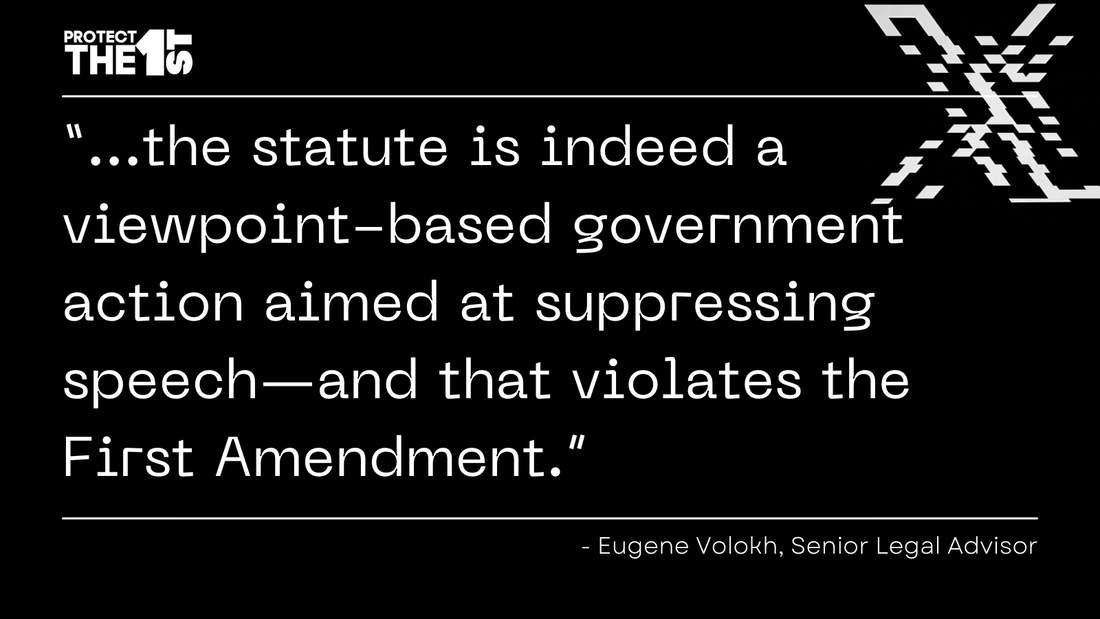
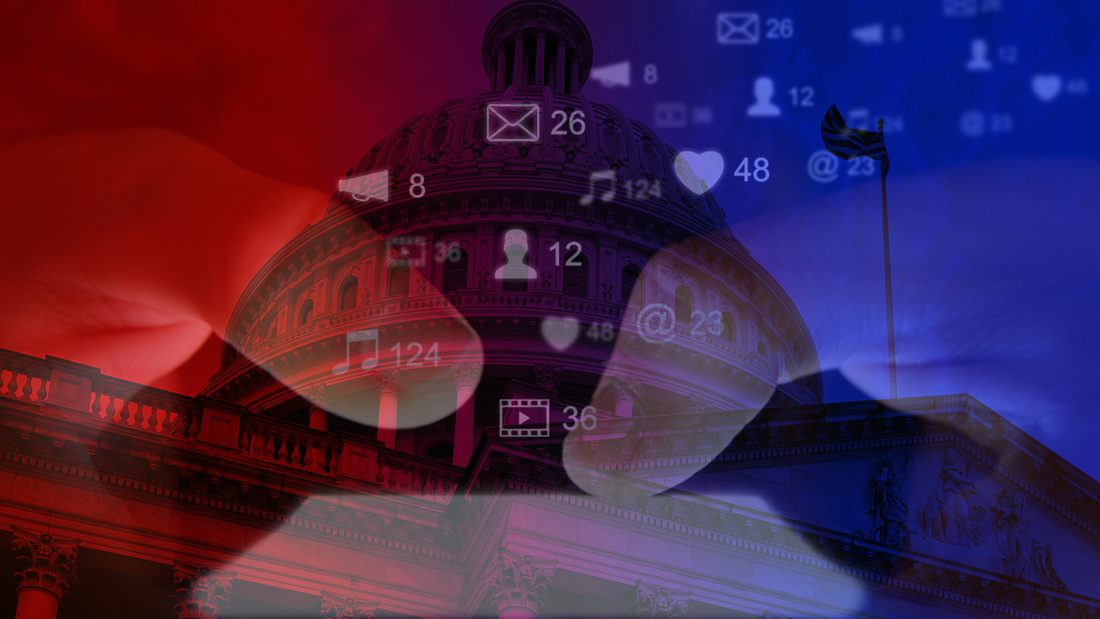

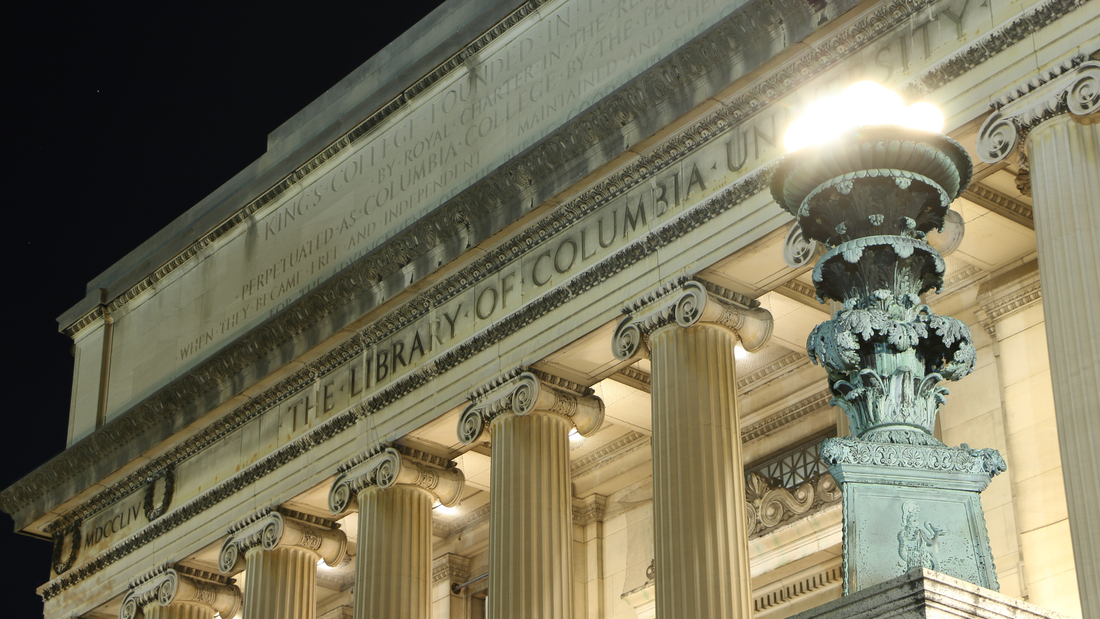

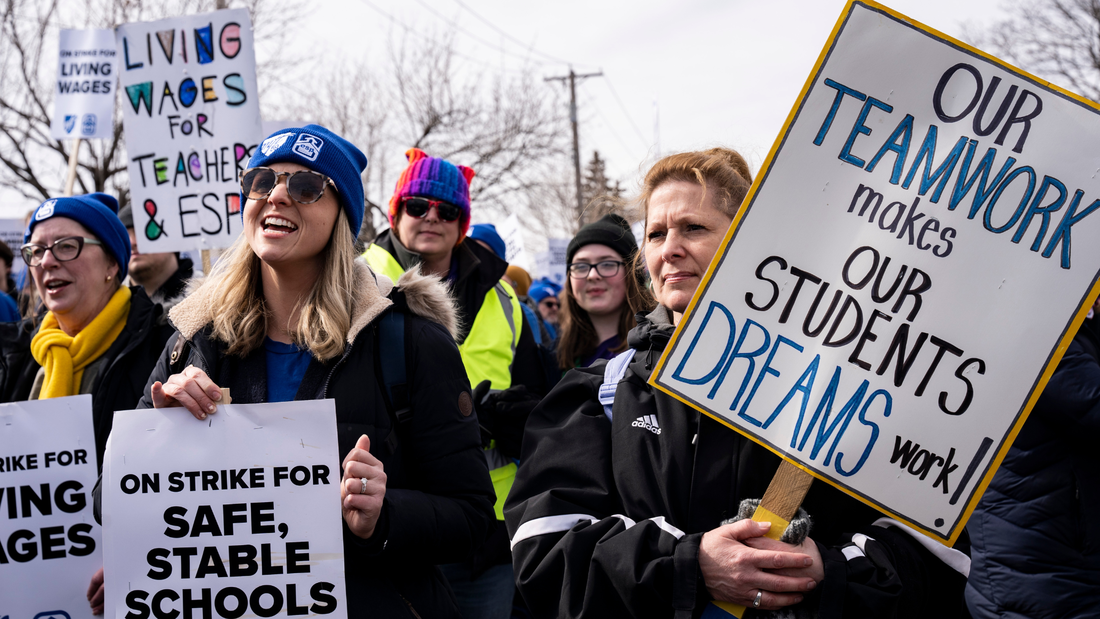
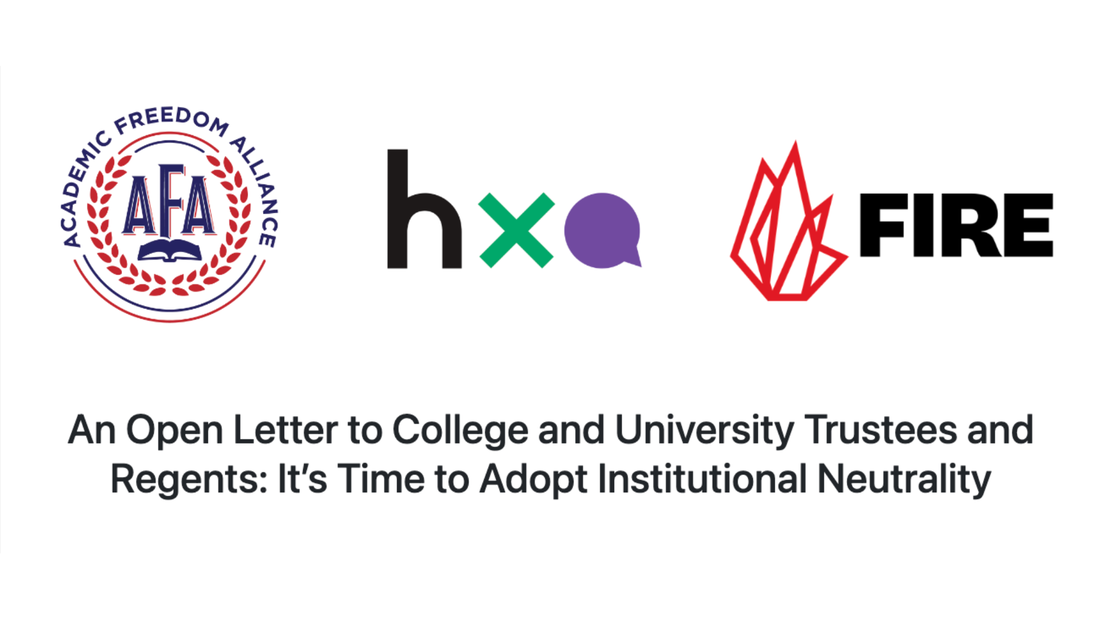

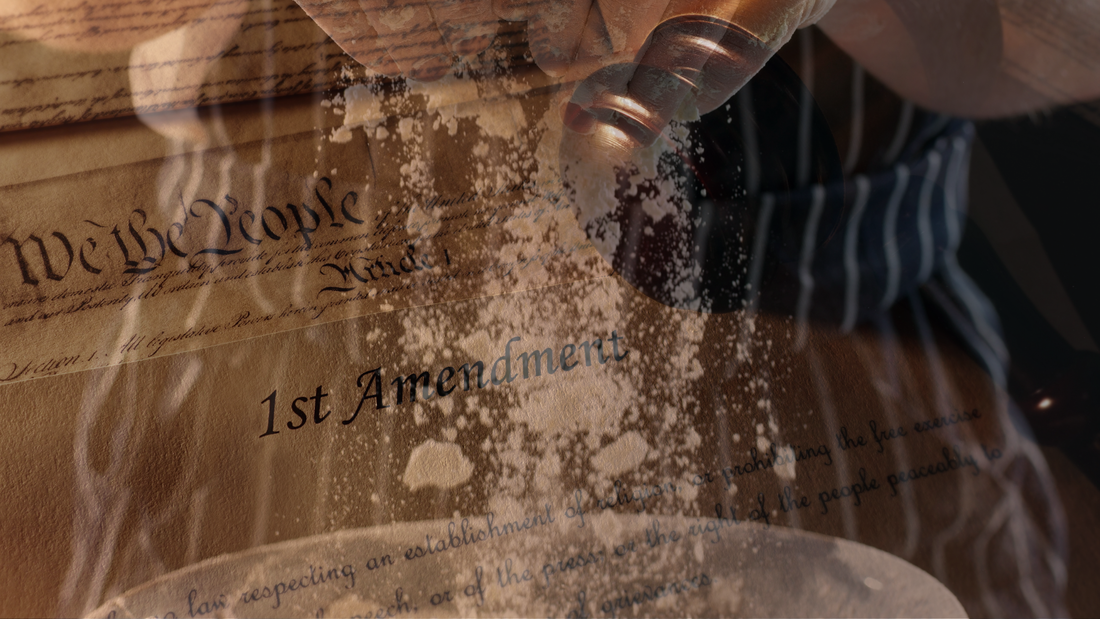




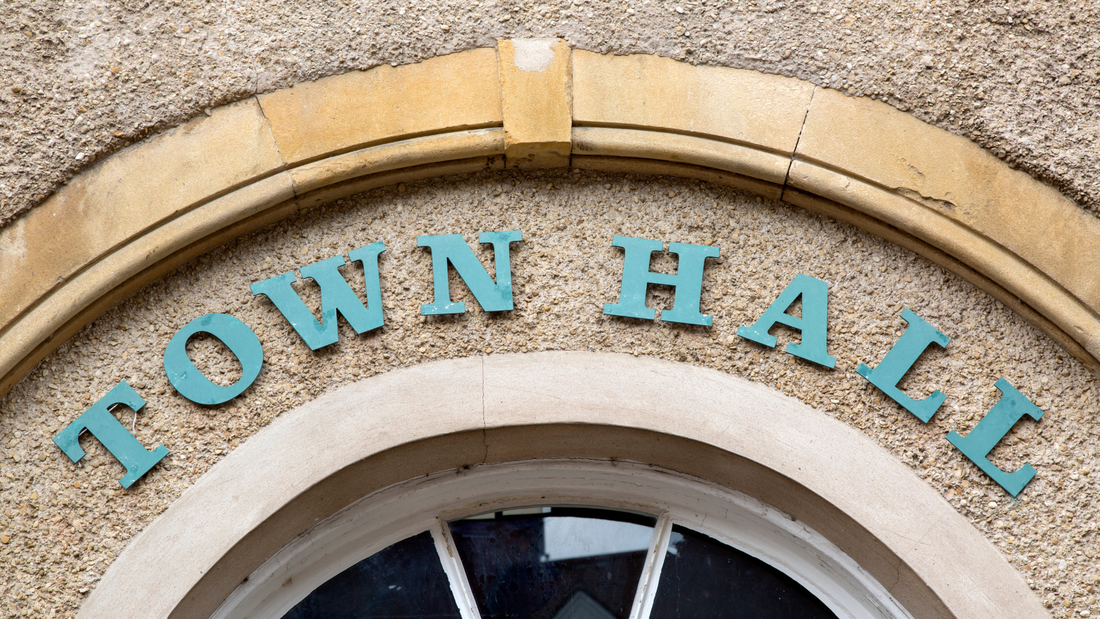


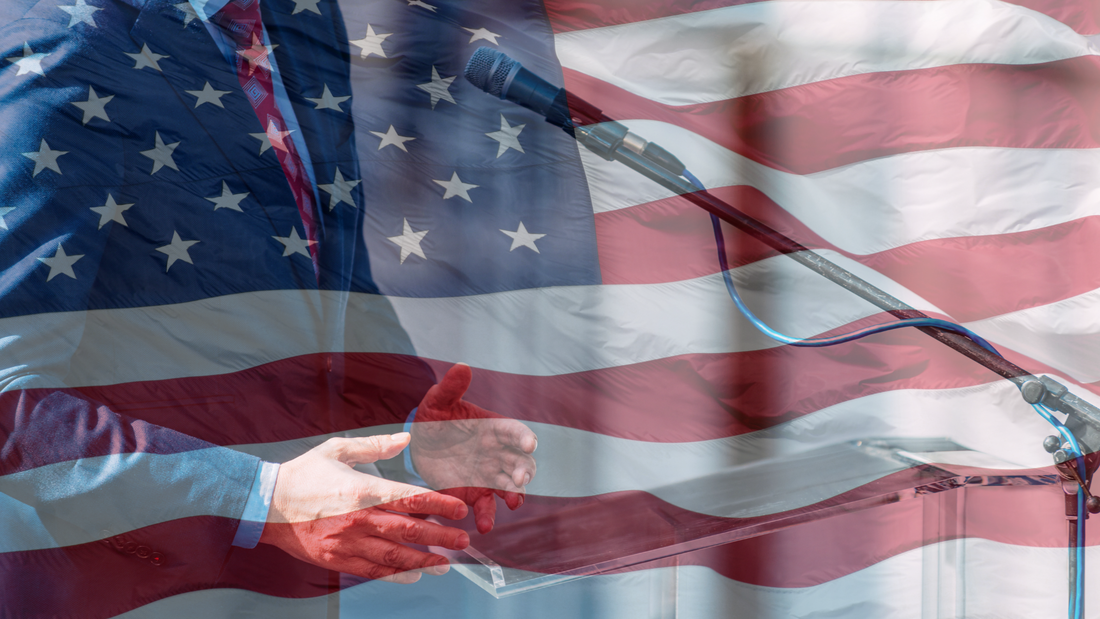

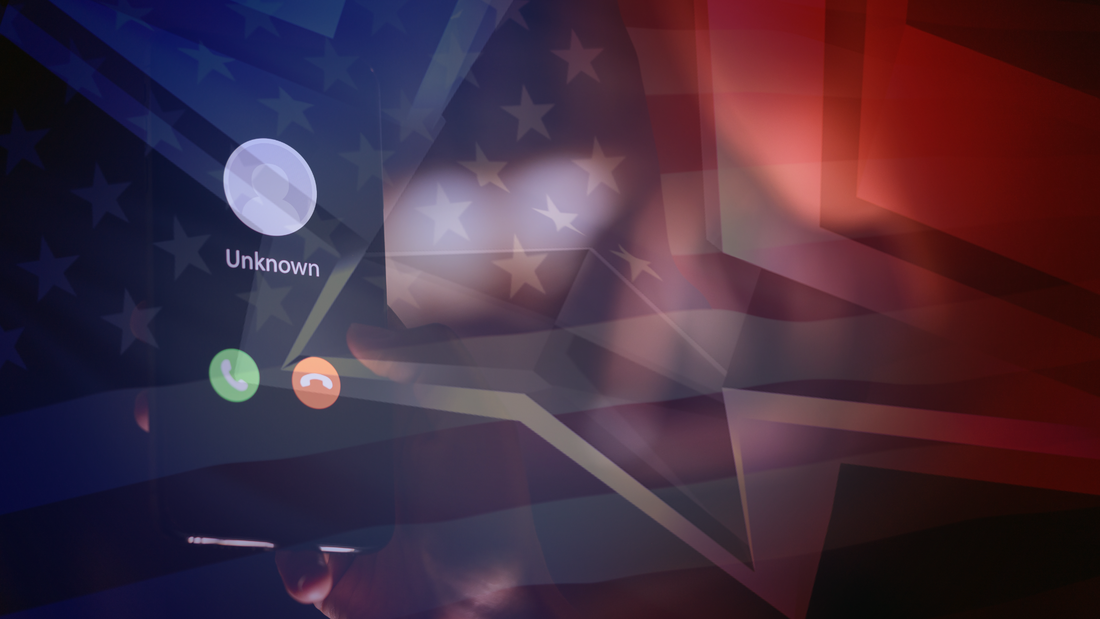
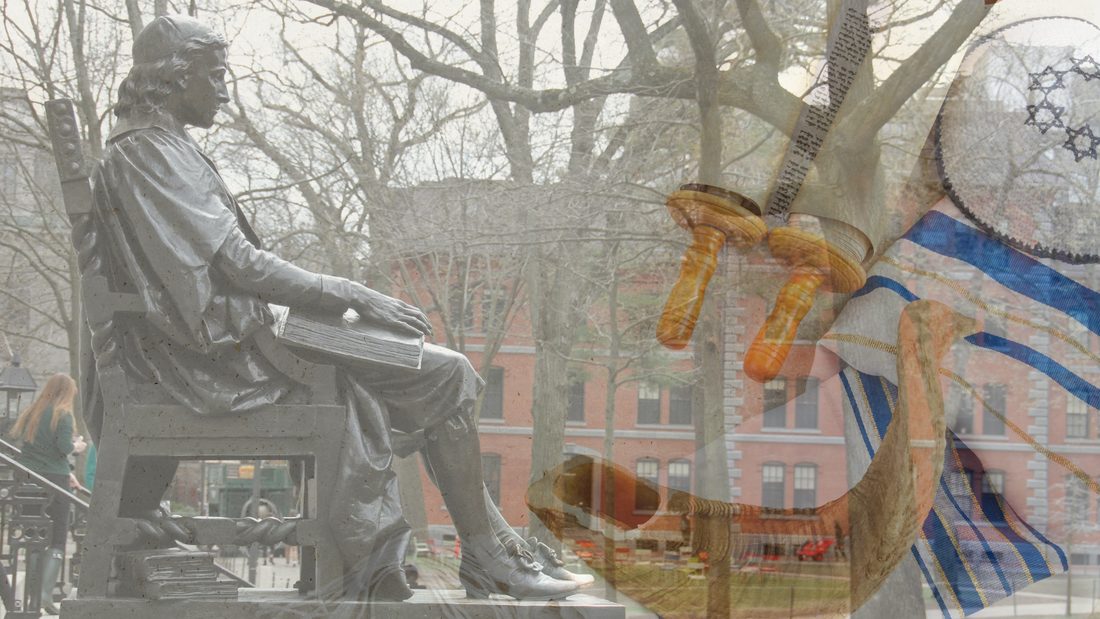
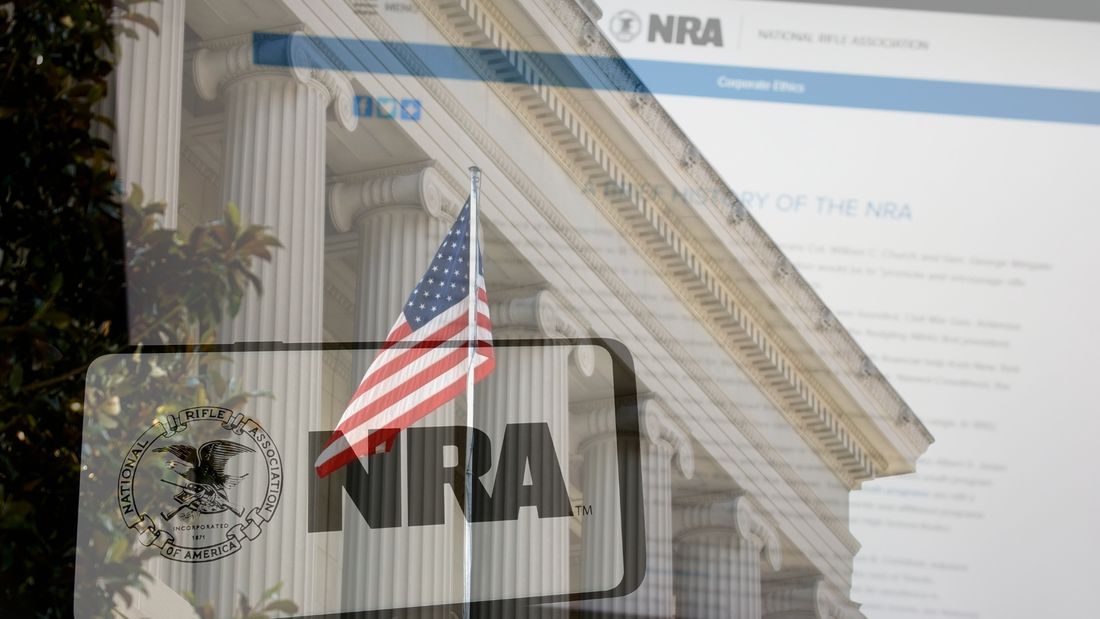
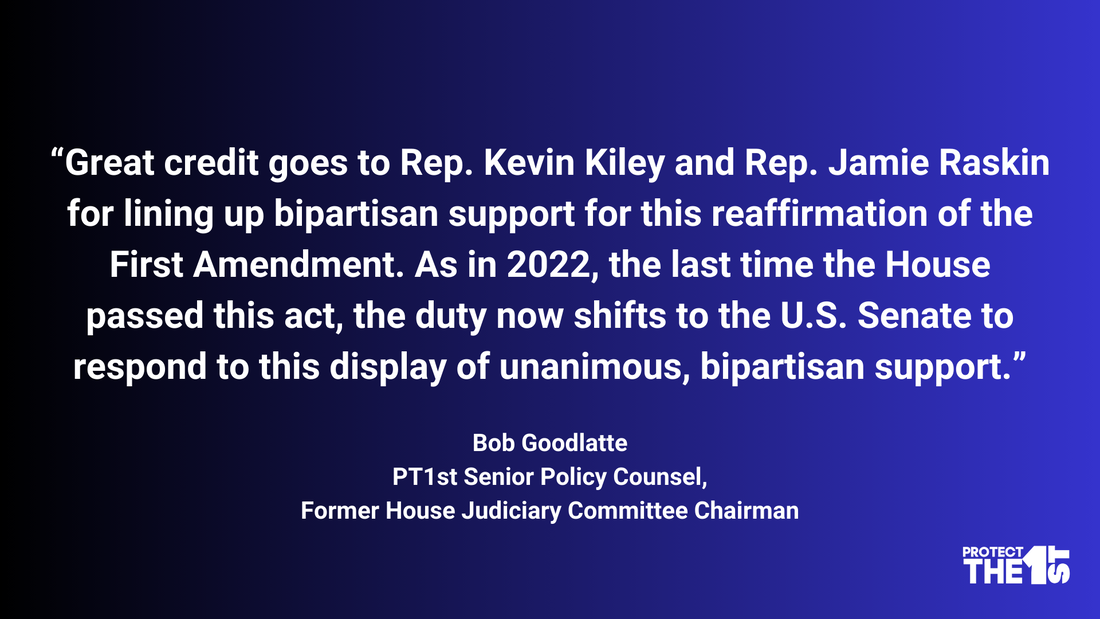
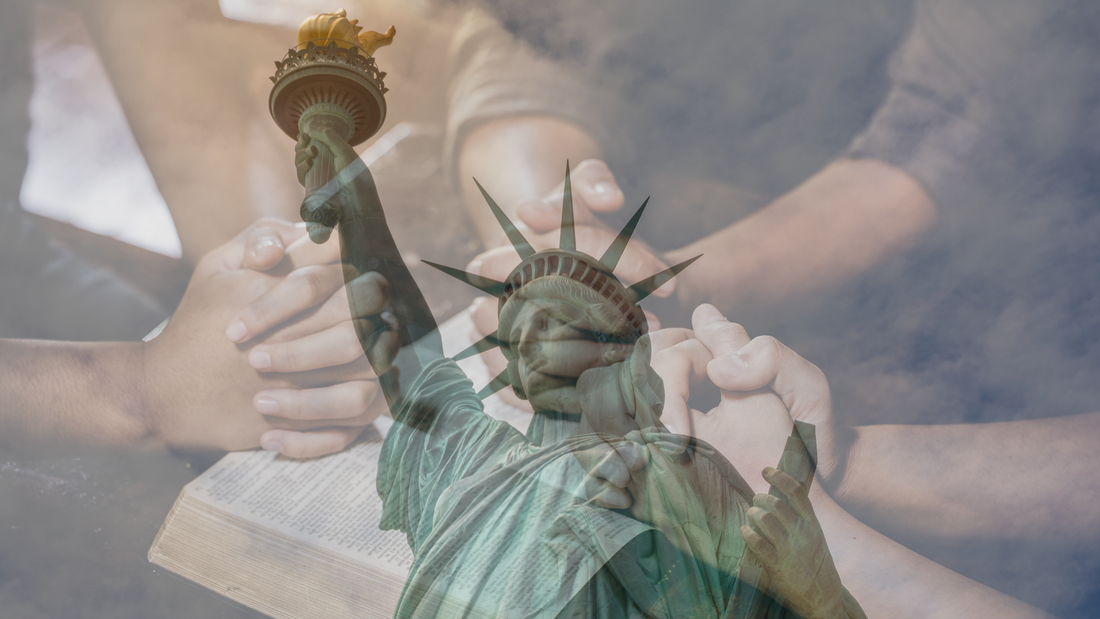
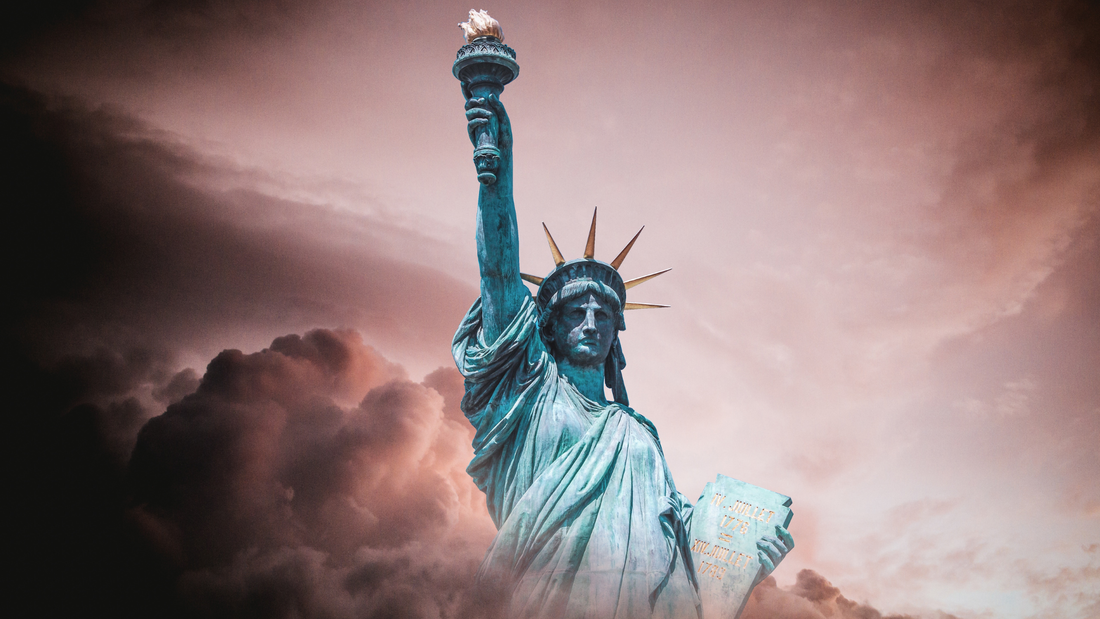
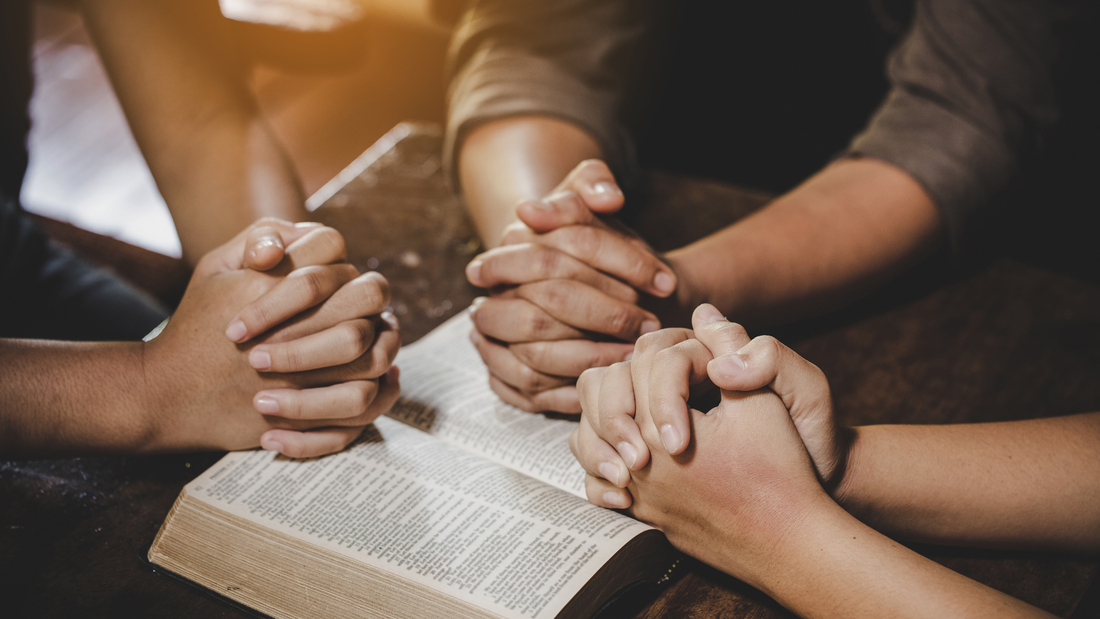
 RSS Feed
RSS Feed